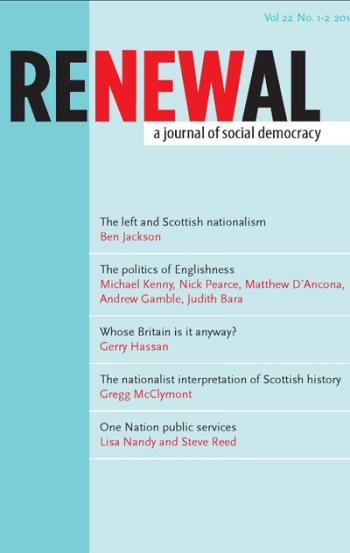
The nationalist interpretation of Scottish history
Renewal - Print ISSN 0968-5211 - Online ISSN
Volume 22 Number 1-2 (2014)
The nationalist interpretation of Scottish history
Greg McClymont
Abstract
The Invisible Spirit: A Life of Post-War Scotland 1945-75
Kenneth Roy
ICS, 2013
For social democrats, the post-war years are usually seen as halcyon days. Across the Western world, including the United Kingdom, societies became healthier, wealthier and more equal. Inequalities were compressed as the dynamism of industrial capitalism was harnessed by the state – both national and local – and by strong trade unions, in the interests of the many not the few. Political parties, while never enjoying a golden age of public approbation, enjoyed mass member- ships. Voter turnout was high. Trust in ‘official’ institutions and in the good intentions of public servants was maintained, although here too there was never a golden age. Political and social democracy co-existed for the first time. The Attlee Government’s promise of a revolution in social security and health-care won it first the votes and then the loyalty of a substantial urbanised and unionised working class employed in an economy characterised by the regionally concentrated heavy industries that had suffered such brutal punishment during the inter-war period. ‘Never Again’ was the folk memory of the hungry 1930s, to which in the post-war period the working classes and sections of the middle classes subscribed.
To cite this article
Greg McClymont (2014) The nationalist interpretation of Scottish history, Renewal, 22(1-2 )
